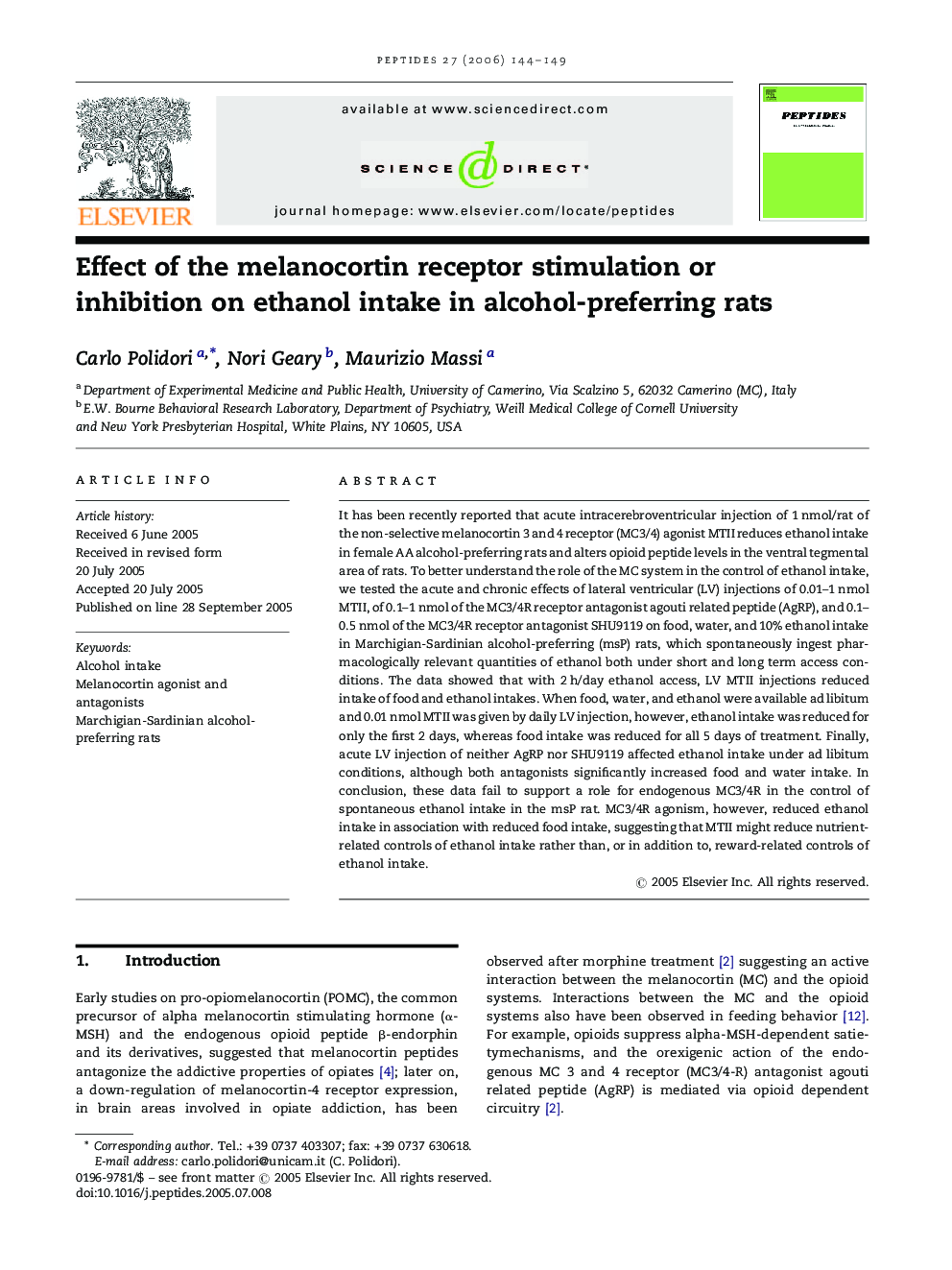| Article ID | Journal | Published Year | Pages | File Type |
|---|---|---|---|---|
| 2008056 | Peptides | 2006 | 6 Pages |
It has been recently reported that acute intracerebroventricular injection of 1 nmol/rat of the non-selective melanocortin 3 and 4 receptor (MC3/4) agonist MTII reduces ethanol intake in female AA alcohol-preferring rats and alters opioid peptide levels in the ventral tegmental area of rats. To better understand the role of the MC system in the control of ethanol intake, we tested the acute and chronic effects of lateral ventricular (LV) injections of 0.01–1 nmol MTII, of 0.1–1 nmol of the MC3/4R receptor antagonist agouti related peptide (AgRP), and 0.1–0.5 nmol of the MC3/4R receptor antagonist SHU9119 on food, water, and 10% ethanol intake in Marchigian-Sardinian alcohol-preferring (msP) rats, which spontaneously ingest pharmacologically relevant quantities of ethanol both under short and long term access conditions. The data showed that with 2 h/day ethanol access, LV MTII injections reduced intake of food and ethanol intakes. When food, water, and ethanol were available ad libitum and 0.01 nmol MTII was given by daily LV injection, however, ethanol intake was reduced for only the first 2 days, whereas food intake was reduced for all 5 days of treatment. Finally, acute LV injection of neither AgRP nor SHU9119 affected ethanol intake under ad libitum conditions, although both antagonists significantly increased food and water intake. In conclusion, these data fail to support a role for endogenous MC3/4R in the control of spontaneous ethanol intake in the msP rat. MC3/4R agonism, however, reduced ethanol intake in association with reduced food intake, suggesting that MTII might reduce nutrient-related controls of ethanol intake rather than, or in addition to, reward-related controls of ethanol intake.
